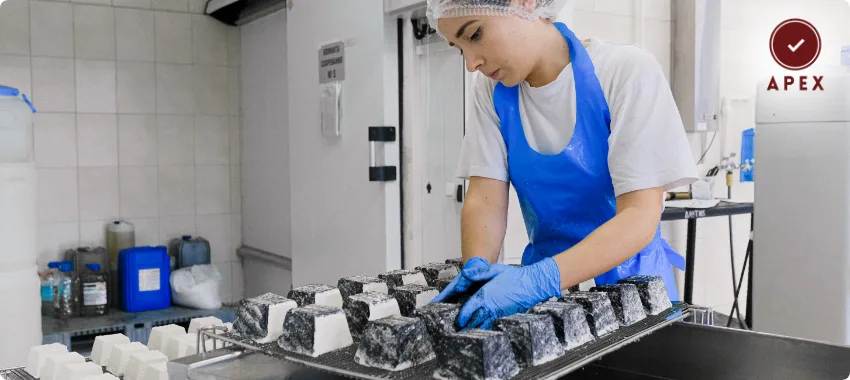HALAL Certification in Umm Al Quwain

The market demand for Halal certification keeps growing since it now serves as a vital requirement for organizations that manufacture food products or develop cosmetics and pharmaceuticals as well as operate logistics services. The increasing industrial development of Umm Al Quwain creates numerous business possibilities for companies that secure Halal certification, which strengthens their market credibility and global market potential.
Understanding Halal Certification
Islamic law recognizes Halal as a word derived from Arabic that conveys "permissible." Product and service providers who want to serve the Muslim population must obtain Halal certification to prove their products align with Islamic religious requirements. Islamic standards, which extend beyond dietary norms, apply to cosmetics and pharmaceutical products as well as packaging materials alongside supply chain management.
Halal certification involves verifying that:
- The ingredients used meet Islamic religious requirements by being Halal, which includes no prohibited substances (haram).
- The manufacturing processes alongside product handling and processing meet all requirements based on Islamic principles.
- Muslim consumers can safely use the final products because they meet hygienic standards that guarantee their readiness for consumption.
Halal consultancy in Umm Al Quwain supports businesses to ensure they meet these standards efficiently, aiding them in complying with both religious and regulatory requirements.
Importance of Halal Certification in Umm Al Quwain
Through the Umm Al Quwain Free Trade Zone initiatives, the state promotes industrial growth, thereby enabling the expansion of businesses operating in food processing and meat production along with cosmetics manufacturing, pharmaceutical industries, and logistics sectors. Many advantages emerge from Halal certification for businesses in this changing business scene.
- Access to Growing Markets
- Regulatory Compliance
- Enhanced Consumer Trust
- Competitive Advantage
The Process of Obtaining Halal Certification
Many businesses first engage ISO consultancy support to develop documentation and processes. Apex SC provides the accredited ISO certification audit and certificate once the system is implemented. We do not offer ISO consultancy services. Organizations may choose any ISO consultant of their preference. To obtain Halal certification, businesses in Umm Al Quwain we follow a specific sequence of procedures.
Step 1: Application and Documentation
The institution needs to provide documentation to an authorized Halal certification authority. The documentation requirements include complete information about all business products and their ingredients supplier data, together with manufacturing processes and cleanliness standards.
Step 2: Pre-assessment Audit
The certification body implements pre-audits to identify non-compliance points, which lead to recommended corrective actions ahead of official inspection procedures.
Step 3: Compliance Review
Several review steps are conducted to validate the following points:
- The company retrieves raw materials along with ingredients exclusively from suppliers who offer Halal certifications.
- Throughout manufacturing and storage activities, the product remains free from Haram (forbidden) materials.
- Every step of the production operation follows the guidelines of Islamic belief.
Step 4: On-site Audit
The facility inspection, along with staff training evaluation and process verification of documents, is performed during site audits.
Step 5: Certification Decision
All necessary requirements successfully met will result in the company receiving its Halal Certificate. The standard duration of certification ends after one year, requiring either a surveillance audit or a re-certification process to take place.
Our services are HALAL Certified
We support Umm Al Quwain businesses by helping them acquire and sustain their Halal certificates. As a globally recognized certified entity that delivers complete Halal certification solutions that fulfill international, regional, and local standards.
- Supports organizations through complete Halal certification procedures starting from gap assessment until the final issuing of certification while ensuring complete awareness of applicable standards.
- Performs thorough documentation audits that assess actual Halal compliance without causing delays to businesses through their unprejudiced audit methodology.
- Provides educational programs that train company employees on their roles in safeguarding Halal compliance standards.
- The organization provides businesses with both certification surveillance audits and re-certification assistance to keep organizations compliant when they expand their operations.
- Companies in Umm Al Quwain that partner with us will simplify their Halal certification process and open new market opportunities in Muslim-majority territories.
By partnering with us, companies in Umm Al Quwain can navigate the complexities of Halal certification more easily and position themselves for broader success in Muslim-majority markets.
FAQs
- ISO 9001 Certification in Umm Al Quwain
- ISO 14001 Certification in Umm Al Quwain
- ISO 45001 Certification in Umm Al Quwain
- HACCP Certification in Umm Al Quwain
- ISO 22000 Certification in Umm Al Quwain
- GMP Certification in Umm Al Quwain
- Halal Certification in Umm Al Quwain
- ISO 27001 Certification in Umm Al Quwain
- ISO 22301 Certification in Umm Al Quwain
